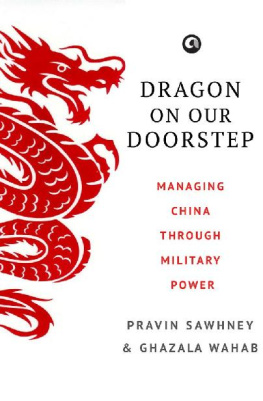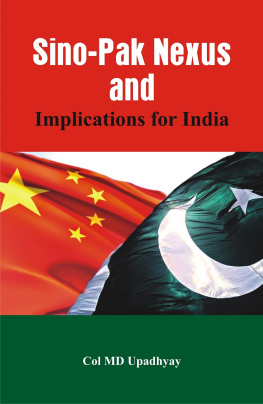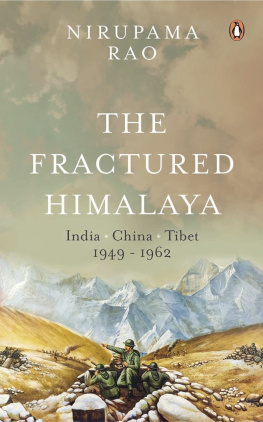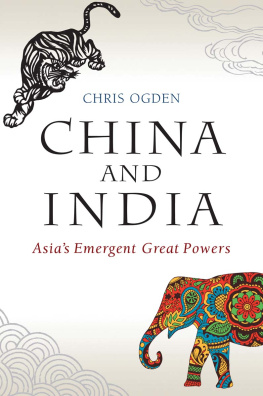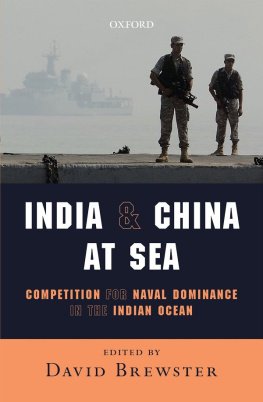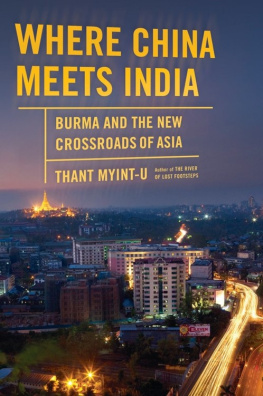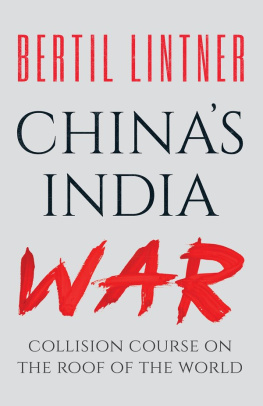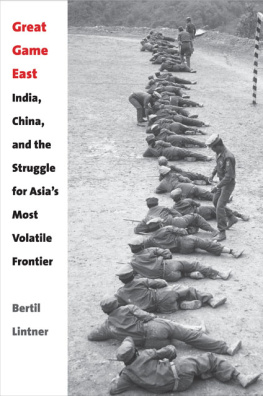Watershed 1967
Watershed 1967
Indias Forgotten Victory Over China
Probal DasGupta

Praise for the Book
This is a thriller-like account of two battles at Nathu La and Cho La between India and China in 1967 that did not get the pride of place in military history and public memory that they deserved. They occurred at a particularly difficult time for India.
This engagingly written page-turner of a book tells the forgotten story of the 1967 battles of Nathu La and Cho La and brave soldiers like Sagat Singh, Bishan Singh and P. S. Dagar who banished the ghosts of the 1962 defeat and of diplomats and spies engaging in a tit-for-tat intrigue.
India didnt gain new territory in 1967 and lost 100 lives. But it gained something far more important its self-esteem and an era of peace. This is a valuable addition to the still thin genre of military historiography in India.
Shekhar Gupta, chairman and editor-in-chief, Print
Watershed 1967 is an exhilarating narrative of a set of high-altitude battles at Nathu La and Cho La in September 1967 that marked the revival of Indias military confidence in its dealings with China. Meticulously researched amidst the backdrop of the 1965 IndiaPakistan conflict and rising tensions between India and China over the status of Sikkim. Probal DasGupta is a gifted storyteller with a real feel for battle.
Air Vice Marshal Arjun Subramaniam (retd), author of Indias Wars: A Military History, 19471971
Major DasGupta sheds valuable light on some of the lesser-known military interactions between India and China his focus being the 1967 battles of Cho La and Nathu La where the tricolor prevailed. Written with distinctive verve this book braids battle narratives with international politics, intrigue and insightful authorial reflections. A must-read for the specialist and the lay person alike.
Commodore C. Uday Bhaskar (retd), director, Society for Policy Studies
India vis-a-vis China must not be seen through the prism of the 1962 war as a sore reminder. The bravery of Cho La and Nathu La of 1967, provided the impetus and strength for recent eye-ball confrontations at DBO, Demchock, Chumar and Doklam. Probal DasGuptas Watershed 1967 is that breath of fresh air which recounts Indian victories, boosts self-esteem and confidence, and lays a new narrative for the 21st century. A welcome addition to the discourse.
Lieutenant General Rakesh Sharma (retd), former adjutant general, Indian army
A book that should forever emblazon 1967s victory against China in Indias public consciousness as much as 1962s defeat. A wonderful account of an operation that has never received its due, filled with delectable granularity, both in the political offices and the battlefield.
Shiv Aroor, co-author of Indias Most Fearless: True Stories of Modern Military Heroes
Sheds light on little-known facts... Vignettes of intrigue playing out like moves on a chessboard... make Probal DasGuptas book critical for anyone following the IndiaChina competition.
Husain Haqqani, former Pakistan ambassador to the US and author of India vs Pakistan: Why Cant We Just Be Friends?
JUGGERNAUT BOOKS
KS House, 118 Shahpur Jat, New Delhi 110049, India
First published by Juggernaut Books 2020
Copyright Probal DasGupta 2020
10 9 8 7 6 5 4 3 2 1
P-ISBN: 9789353450939
E-ISBN: 9789353450946
All rights reserved. No part of this publication may be reproduced, transmitted, or stored in a retrieval system in any form or by any means without the written permission of the publisher.
For sale in the Indian Subcontinent only
Typeset in Adobe Caslon Pro by R. Ajith Kumar, Noida
Printed at Thomson Press India Ltd
For Baba,
who will inspire me forever
Contents
India and China are neighbours with much in common. Big land masses, crowded cities, large populations. Between the two countries lives one-third of the human population on earth, histories of many hundreds of years of invasions, brutal oppressions and famines and, of course, Buddhism and the Dalai Lama. They share crucial differences too: ideological distinctions being one (one is a communist dictatorship and another a democracy) and the choice of friends being the other (Pakistan is an all-weather friend to one and foe to the other). Much of their history of the last sixty years though centres around the bitter war the two countries fought in the Himalayas.
The 1962 war, which China won, is a significant event in the relationship and a sore memory for Indians. The dismal defeat dealt a cruel blow to the pride of a grand old civilization and a newly independent country born fifteen years earlier. The impact of that defeat still lingers in Indian thinking about the dangers of antagonizing China.
But unremembered by most people is an equally significant event that took place five years after the 1962 war. India and China fought again in 1967, on two Himalayan passes called Cho La and Nathu La at the ChinaSikkim border. This book traces the story of that incredible but forgotten victory over China.
The narrative in this book has been divided into three parts. The story begins in Part 1 three years after the IndiaChina war of 1962. India was still recovering from the damaged morale of its political and military leadership. After the defeat of 1962, India began to acquire weapons and equipment, besides raising multiple army divisions to strengthen its defences. Such rapid developments caught the attention of Pakistani leaders who believed that a better armed and prepared India would be difficult to overwhelm in the future. An alliance against India was entered into between Pakistan and China which suited both countries. For Pakistan, the unresolved issue of Kashmir was a motivation to corner India when it was down, while for China a natural ally such as Pakistan, given the historic IndiaPakistan animosity, could be used to fight a convenient proxy war to further establish its dominance over India. In 1965, two vulnerable points Kashmir in the north and Sikkim in the east presented an opportunity for China and Pakistan to stretch Indias military deployment on both flanks and demolish its defence capabilities. On both fronts there existed narrow geographical corridors whose capture could end up dismembering India.
The book begins with a story of international intrigue and the resultant devious plan hatched by Pakistan and China to attack India in 1965. This well-crafted plan was shrewdly shared with a prominent Kashmiri politician to try to acquire local support for a Pakistani attack against India. Around the same time, American spies and the CIA, aware about the turn of events, were gazing at a potential war involving the three countries India, China and Pakistan.
War finally broke out between India and Pakistan in August 1965. Pakistan used a combination of covert and conventional approaches to wage war in Kashmir and then in Punjab, while China threatened Indias protectorate state of Sikkim, then under the control of monarchy. The plan was to capture Kashmir and occupy Sikkim and then force India to the negotiating table for a barter exchange involving the two states. But Indias successful performance in the 1965 war against Pakistan foiled the Sino-Pakistani plans. Chinas threat on the eastern border, though, remained unresolved. The war ended with India acquiring an edge over Pakistan but also resulted in a permanent Chinese presence on the Sikkim border. The stage was set for India and China to face off in Sikkim.
The second part of the book traces the events from the end of the 1965 war and leads into the historic battles of 1967. Sikkims royals wanted Sikkim to be an independent state, much to the annoyance of the government in New Delhi. And China tried constantly to bully and browbeat India. There were frequent disputes between New Delhi and Peking (now Beijing) in this period on issues such as Bhutans territory of Doklam and Chinas support to insurgency movements in India, including the new Naxal movement inside Bengal. These were years when things were constantly on the boil: there were frequent skirmishes on the SikkimChina border, and even the arrest of two Indian diplomats in Peking and the tit-for-tat mistreatment of Chinese diplomats in New Delhi. Atal Bihari Vajpayee even led a flock of sheep to the gates of the Chinese embassy in Delhi to protest Pekings belligerence.
Next page

